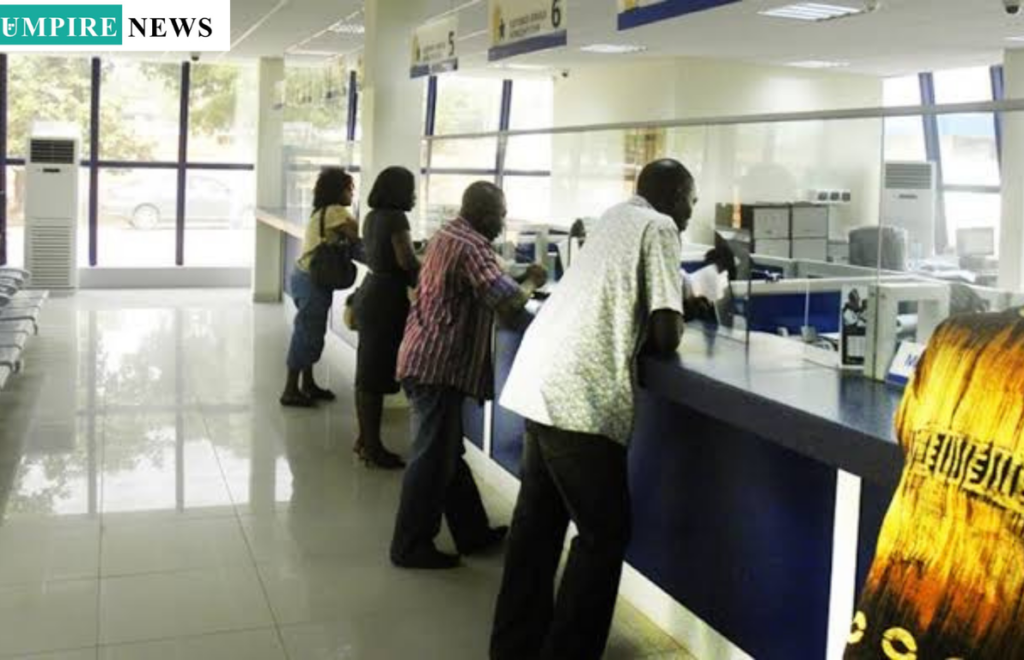Despite the ongoing economic challenges faced by the majority of Nigerians, the nation’s banking sector continues to see a significant surge in customer deposits.
The latest report from the Central Bank of Nigeria (CBN) reveals that banks’ demand deposits have experienced substantial growth during the first nine months of 2024.
According to the data, the total demand deposits in Nigerian banks rose by 16.5 percent, reaching N31.08 trillion by the end of August, compared to N26.68 trillion recorded at the close of December 2023.
The report from the CBN provides further insight into this growth trajectory. It highlights that at the end of the first quarter of 2024, the total demand deposits stood at N28.9 trillion, marking an 8.1 percent increase from the N26.7 trillion recorded in December 2023.

This upward trend continued into the second quarter of the year. By the end of June 2024, demand deposits had risen to N33.0 trillion, reflecting a 14.3 percent increase from the N28.7 trillion registered at the end of March 2024.
This continuous rise in bank deposits is not an isolated phenomenon but is mirrored in other financial data. Audited reports and regulatory filings from commercial banks and their holding companies, published on the Nigerian Exchange (NGX), reveal that the banking sector’s total deposits stood at approximately N136 trillion in the first half of 2024.
This represents a significant 18.3 percent increase over the N115 trillion recorded during the same period in 2023.
Moreover, the audited reports indicate that the total deposits in the banking sector soared by a remarkable 63 percent in the full year of 2023, reaching around N115 trillion, compared to N70.5 trillion in 2022.
These statistics suggest that both individuals and institutions are increasingly opting to hold their assets in cash.
The rapid growth in deposits may be driven by the inflationary environment that is influencing financial behaviors across the country.
Meanwhile, the latest figures from the CBN show a parallel development in Nigeria’s broader money supply.
According to the CBN’s report, the country’s money supply (M2) surged to an all-time high of N107.1 trillion by August 2024.

This marks a 0.75 percent month-on-month (M-o-M) increase from N106.3 trillion in July and a 5.6 percent rise from N101.4 trillion in June.
This substantial increase in the money supply presents a significant challenge for the CBN’s Monetary Policy Committee (MPC), which is tasked with balancing economic growth and controlling inflation.
The CBN has been grappling with the effects of increased liquidity in the economy, as it aims to curb inflationary pressures without stifling economic development.
The sharp rise in liquidity is a major concern for policymakers, as it threatens to exacerbate inflationary trends that are already impacting the cost of living for many Nigerians.
In a broader context, the money supply has grown significantly over the past year. The report from the CBN shows that Nigeria’s total money supply has increased by a staggering 65 percent in just one year.
In August 2023, the money supply stood at N64.8 trillion, but by August 2024, it had risen sharply to N107.1 trillion.
This rapid expansion in liquidity highlights the ongoing challenge of managing the country’s monetary policy in a volatile economic environment.
As the CBN continues to monitor these developments, the banking sector’s rise in deposits and the increasing money supply will remain key factors in shaping the central bank’s monetary policy decisions.
While the surge in deposits suggests growing confidence in the banking system, it also raises concerns about the broader economic implications, particularly in relation to inflation and the cost of living.
The ongoing rise in deposits and money supply underscores the need for strategic interventions to ensure that the economic environment remains stable while fostering growth.
































